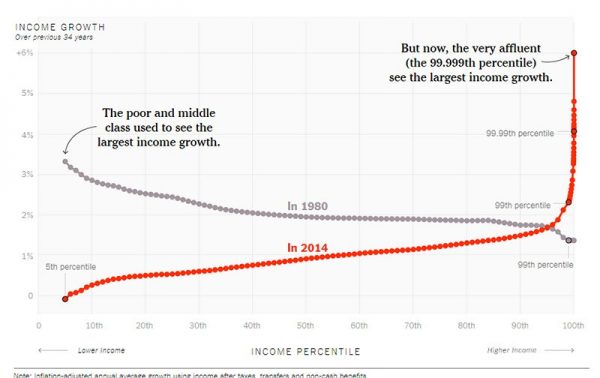SNAP recipients would get shelf-stable milk, cereals, pasta, peanut butter, beans and canned — but no fresh — fruit and vegetables. https://t.co/MMLPjncH1M
— NPR (@NPR) February 13, 2018
Mick Mulvaney’s brill idea seems to have evaporated overnight, but Repubs never give up on a proposal that looks like a chance to screw The Undeserving while allowing a little free-market looting… er, “privatization”… of the common treasury. So I figure we’ll soon be seeing sketches of the proposed Versace-designed uniforms for the troops of the ‘SNAP czar’ in charge of seeing those people are humiliated and starved for the crime of being poor:
The Trump administration is proposing a major shake-up in one of the country’s most important “safety net” programs, the Supplemental Nutrition Assistance Program, formerly known as food stamps. Under the proposal, most SNAP recipients would lose much of their ability to choose the food they buy with their SNAP benefits.
The proposal is included in the Trump administration budget request for fiscal year 2019. It would require approval from Congress…
Currently, SNAP beneficiaries get money loaded onto an EBT card they can use to buy what they want as long as it falls under the guidelines. The administration says the move is a “cost-effective approach” with “no loss in food benefits to participants.”
The USDA believes that state governments will be able to deliver this food at much less cost than SNAP recipients currently pay for food at retail stores — thus reducing the overall cost of the SNAP program by $129 billion over the next 10 years.
This and other changes in the SNAP program, according to the Trump administration, will reduce the SNAP budget by $213 billion over those years — cutting the program by almost 30 percent.
Joel Berg, CEO of Hunger Free America, a hunger advocacy group that also helps clients access food-assistance services, said the administration’s plan left him baffled. “They have managed to propose nearly the impossible, taking over $200 billion worth of food from low-income Americans while increasing bureaucracy and reducing choices,” Berg says…
It isn’t clear how billions of dollars’ worth of food each year would be distributed to millions of SNAP recipients who live all over the country, including dense urban areas and sparsely populated rural regions. The budget says states will have “substantial flexibility in designing the food box delivery system through existing infrastructure, partnerships or commercial/retail delivery services.”
Critics of the proposal said distributing that much food presents a logistical nightmare. “Among the problems, it’s going to be costly and take money out of the [SNAP] program from the administrative side. It’s going to stigmatize people when they have to go to certain places to pick up benefits,” says Jim Weill, president of the nonprofit Food Research and Action Center…
According to Dean, from CBPP, the Trump administration wants to trim an additional $80 billion from the SNAP program by cutting off about 4 million people who currently receive food assistance. Most of them live in states that have decided to loosen the program’s eligibility requirements slightly. Under the administration’s proposal, states would no longer be able to do so…
Of course, the biggest beneficiaries of SNAP are American farmers and local food retailers, both of whom need those ‘food stamp moochers’ as paying customers.
For more background, Simon Maloy at Media Matters has a good summary of the “decades of conservative lies about welfare” behind “Trump’s SNAP attack”.
1. What if you don't receive your box one month?
2. What if you're homeless?
3. What if you don't have a place to receive mail?
4. What if you move frequently?
5. What if you have allergies?
6. What if the box gets wet, or animals get into it?— Annie Lowrey (@AnnieLowrey) February 13, 2018
(Fifty-four more excellent questions from Lowrey here.)
The government contractor could only manage delivering 50,000 of the 30 million meals contracted for Puerto Rico, but I'm sure they'll give the job of packing and delivering boxes of cans to 16.4 million households to a more qualified crony.
— Schooley (@Rschooley) February 13, 2018
Late Night Horrorshow Open Thread: Maybe They’ll Call It ‘Brown Apron’Post + Comments (66)



